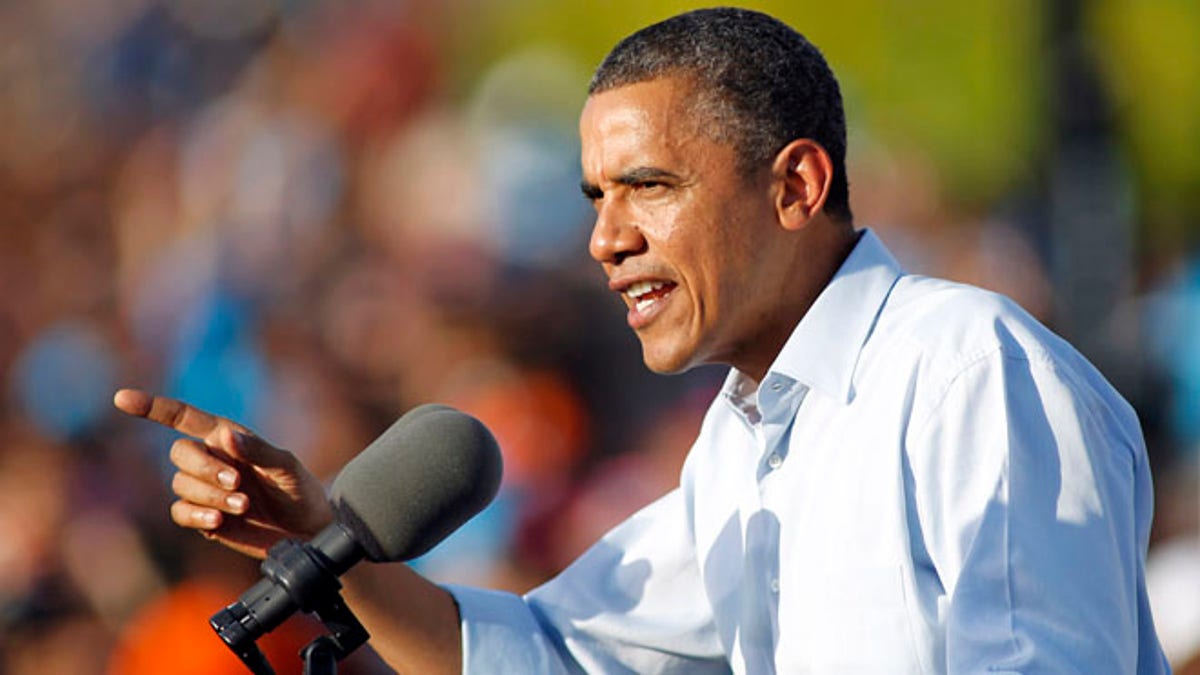
Nov. 4, 2012: President Barack Obama speaks during a campaign event at McArthur High School in Hollywood, Fla. (AP)
In a now legendary speech given at the conservative CPAC convention, Andrew Breitbart decried the fact that candidate Barack Obama had never been properly vetted in 2008, and Breitbart promised that he would be in charge of the vetting of President Obama in 2012.
As we all know, Andrew never lived to see that vetting, succumbing to a heart attack earlier this year. But a funny thing happened in the wake of Hurricane Andrew: Others picked up where he left off.
His eponymous Breitbart News Network carries on his vision of equal vetting, exposing Americans to video of then Harvard Law student Barack Obama leading a protest in support of a racially divisive and some say racialist professor.
Then along came Dinesh D'Souza and the spectacular success of his film "2016: Obama's America," whose stunning box office success made it the No. 1 documentary of the year and the No. 2 political documentary of all time, after Michael Moore's "Fahrenheit 911." The film garnered an overwhelming crossover audience and was said to have tested especially well among independents, as well as non-white Americans, and many professed to be shocked at a side of Obama they had never contemplated.
Numerous books, like "The Amateur" and David Marniss's book "Barack Obama," helped the American people get a clearer portrait of who Obama was and is.
As the director of "Hating Breitbart," a look at Andrew's life and career and battles with the media establishment that is beginning its run in theaters, I can tell you with some degree of certainty that Andrew would be well pleased to see his demand for equal vetting powerfully picked up by others and that whatever the outcome of the election on Tuesday, at least voters will be going to the polls with more information than they had on Obama the first time around.
Andrew wanted information to flow freely and openly and nothing made him more angry than to witness the so-called mainstream media cover for candidate Obama in '08 and sit on information they had, out of some misguided sense of patriotism and liberal guilt, which led them to cheer on Obama instead of being the neutral arbiters they claimed to be.
No less an authority on film than Variety has noted of my film that it "could have a long shelf-life in college media studies courses as a teaching tool. One does not have to agree with Breitbart or his politics to acknowledge that the pic offers some morsels of food for thought as it presents Breitbart's side of the story while cataloguing various controversies in which he has been involved."
A film on Andrew Breitbart played in college media studies courses? He would have cherished that thought, just as he would have rejoiced at the welcome news that a new guard of courageous Americans picked up right where he left off and brought the truth about their President to their attention when the self-appointed messengers of information and unbiased truth refused to do their job.
